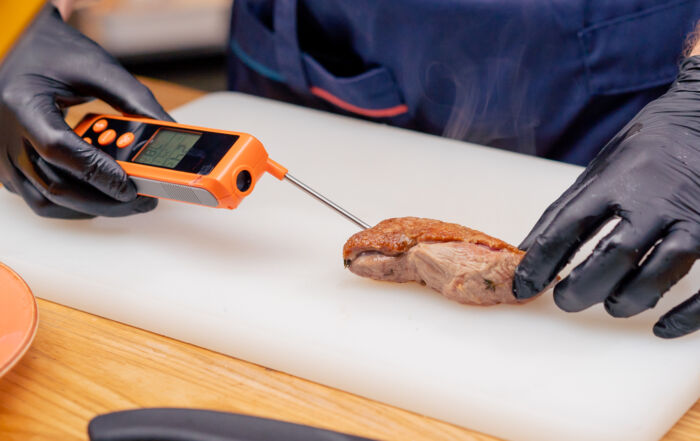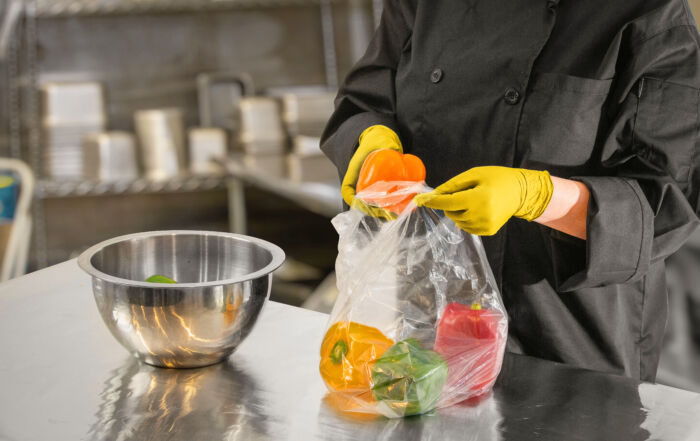Navigating the Latest Listeria Outbreak…again
Welcome to Food Safety Education Month! Late last month in my blog we talked about this once-a-year time to focus on educating your employees and amping up your food safety plan for the next year. But as we end out the summer, we find ourselves in the midst of a large-scale foodborne illness outbreak. This outbreak involves Boar’s Head products, commonly used in the foodservice industry, and Listeria Monocytogenes.
The only Boar’s Head product that has been implicated thus far is a Boar’s Head Liverwurst product that was produced between June 11 and July 17, 2024. To-date, 18 states have been impacted, many on the east coast, but it has also hit the upper Midwest, Arizona, and New Mexico. As of this publishing, there have been 57 cases recognized, all of which required hospitalization, and nine deaths.
Listeria has been a common cause of outbreaks in the last few years, and we have discussed it within our blogs before, both earlier this year and in prior years. What makes this outbreak particularly troublesome is that the product is a ready-to-eat liverwurst product. While you may have been stuck on the fact that it is liverwurst, and although I love liverwurst, many people are not fond of it, so they skip over the fact that it is a ready-to-eat product.
One of the things we know about listeria is that an effective way to protect yourself from listeria is to heat or cook items to 165°F (74°C) prior to consuming them. Listeria bacteria can survive in refrigerated conditions, but they are killed by heat. And while some people do like to cook liverwurst in a little oil to give it some crispness and texture, most eat it cold or use it as a spread.
… We find ourselves in the midst of a large-scale Listeria Monocytogenes outbreak. This particular outbreak involved products commonly used in the foodservice industry.
As a foodservice operator, what can you do to protect yourselves from outbreaks such as this? After all, Boar’s Head has been a highly respected producer for many years, so our warning to only buy from reputable suppliers is somewhat of a moot point. Here are some considerations:
- Often your foodservice suppliers will help inform you of these recalls, but don’t depend solely on them. Stay updated on food recalls. You can sign up to be on an email list from the USDA and FDA by visiting www.recalls.gov. If you sign-up, be prepared for a lot of recall notifications, but really, it will only take a minute or two a day to scan the recalls you receive to determine if your operation uses the product.
- Too often, employees take ready-to-eat products, including deli meats, for granted, not remembering that the same rules of cross contamination should apply. If listeria did happen to find its way into your business through a deli meat product, you can help contain it by treating it like any other meat product and avoid cross contamination.
- Keep deli meats refrigerated at 41°F (5°C) or lower. After deli meats are delivered, make sure they find their way to the cooler as quickly as possible, especially during the hot weather months.
- Once opened, deli meat should be consumed within seven days. For those who prefer to buy deli meats in bulk, freezing is a good option. You can safely freeze deli meats for up to two months without significant loss of quality, but make sure to thaw them in the refrigerator before eating and be sure you are able to track the product within your operation. Should a recall be issued on the product a month after placing it in the freezer, you want to be able to determine if the product was part of that recall.
There will be a lot more coming out about this most recent outbreak in the coming weeks. I’ve already read quite a bit about the conditions that caused it, but until final reports come out, I hesitate to comment on reports that may or may not be true. As an operator, have good standards in place within your operation and rely on your employees and the culture of food safety that you’ve spent time developing. Risk Nothing.
READ MORE POSTS
Cold Chain Management in Winter: Why Cold Weather ≠ Safe
In early January, my family and I returned home from an extended time away to [...]
Seafood Safety for Lent: Essential Guidelines for Foodservice Operations
As Lent approaches, many foodservice operations prepare for an increase in seafood sales and some [...]
Dry Storage Sanitation: The Often-Overlooked Foundation of Food Safety
When you think about sanitation as a foodservice operator, you might think about food production [...]
Resolve to Protect: Why This Year’s #1 Priority Should Be Food Safety
The new year presents foodservice managers with a wonderful opportunity to reset, refocus, and recommit [...]










